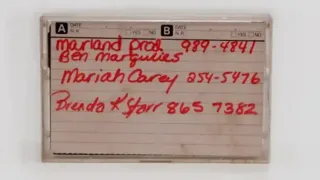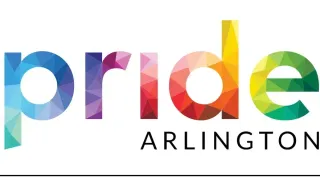November 12, 2023
Review: Documentary 'Serving in Secret' Tells All about 'Don't Ask Don't Tell' and Its Repeal
Kilian Melloy READ TIME: 4 MIN.
The repeal of "Don't Ask, Don't Tell," the law barring openly LGBTQ+ Americans from serving their country in uniform, happened in 2010 – so long ago that it almost seems like ancient history. Now MSNBC refreshes our memories (or, for the young, provides critical education) about the policy and its eventual abolition with the hourlong documentary "Serving in Secret."
"DADT" was enacted under President Bill Clinton in 1993, despite Clinton's campaign promises to do away with what had, until then, been a military that could have been reversed with an executive order. Once "DADT" was signed into law, however, it could no longer simply be dispensed with by the Commander in Chief; only Congress (or the Supreme Court) could overturn it. The law hinted at a guarantee that LGBTQ+ Americans could serve their country as long as they told no one about their authentic selves – no one except a doctor, lawyer, or chaplain, that is. To do so would be essentially the same thing as engaging in non-heterosexual intimate relations, because a gay person's admission of being gay was seen as grounds for assuming that he (or she or they) engaged in such sexual conduct.
Clinton's signing of "DADT" was seen by some as a betrayal, but the new documentary traces the reasons for the law's passage – and addresses the subject of LTBGQ+ people serving in the U.S. military as far back as the Revolutionary War, when Inspector General of the Continental Army Friedrich von Steuben wrote "Regulations for the Order and Discipline of the Troops of the United States" – literally, as one of the doc's commentators notes, the book on military cohesion and readiness that supporters of "DADT" claimed openly gay servicemembers would destroy. Spoiler alert: We hear in the course of the documentary that von Steuben was gay.
That's only one of the hypocritical highlights around the military's rationales around barring qualified patriots from serving their country on the basis of nothing more than their sexual orientation or gender identity. As Rachel Maddow points out, the military suddenly lost all worries about whether gays in uniform would destroy the country's military effectiveness when it came time to go to war. That was true in World War II, when homosexuality first started to be seen as an personal trait rather than as a potentially "one-off" situation and LGTBQ+ people per se began to be excluded from service – in theory, at least. The truth of the matter was quite different.
So it was again after 9/11, a national tragedy that came to pass after seven highly qualified Arabic translators were thrown out of the armed forces for being gay and a backlog in key intelligence operations resulted. The aftermath of 9/11 included the wars in Iraq (even though Iraq had nothing to do with 9/11) and Afghanistan – military operations during which no one seemed in an urgent hurry to expose and expel LGNTQ+ servicemembers.
And exposing gays was indeed a thing. As Col. Stewart Bornhoff (the Servicemembers Legal Defense Network Military Advisory Committee Chair) recalls, "There were people asking and probing." It wasn't enough to keep one's truth to oneself; gay troops were being hunted and discharged, and a dishonorable discharge was a black mark on a person's life that could seriously curtail future prospects.
Such was the case for a servicemember named Courtland Hirschi, the partner of Thomas T. Carpenter, a Naval Academy graduate and Marine pilot. After being accused on being gay by a fellow member of the military, Hirschi was cashiered out of the service and struggled to get his life back on track. (Carpenter resigned his own commission in protest, becoming a lawyer and a central figure in the story to rid the U.S. of the burden of DADT.) Eventually, it came to light that the Hirshi's accuser was a felon convicted for indecently exposing himself to young girls near schools. That, together with Hirschi's excellent service record, led to Hirschi being issued an honorable discharge.
But not every story of gay servicemembers unjustly targeted had such a happy ending. Even now, former troops tossed out with dishonorable discharges for being LGBTQ+ continue to seek justice.
With commentary from everyone from equality advocate David Mixner to out Secretary of Transportation and Navy veteran Pete Buttigieg to Jeh Johnson, who co-chaired the group studying DADT leading up to its repeal, "Serving in Secret" feels like a living document and a vital part of our community's oral history. It also feels like unmissable information; as Secretary Buttigieg notes (and GOP lawmakers at the state and federal levels demonstrate on a daily basis with the greatest flurry of anti-LGTBQ+ bills in recent history), "No progress takes place on a one-way street."
If the battle to hold on to our rights has been joined, "Serving in Secret" is a mission-critical document.
"Serving in Secret" airs on MSNBC on Nov. 12 and streams on Peacock staring Nov. 13.






